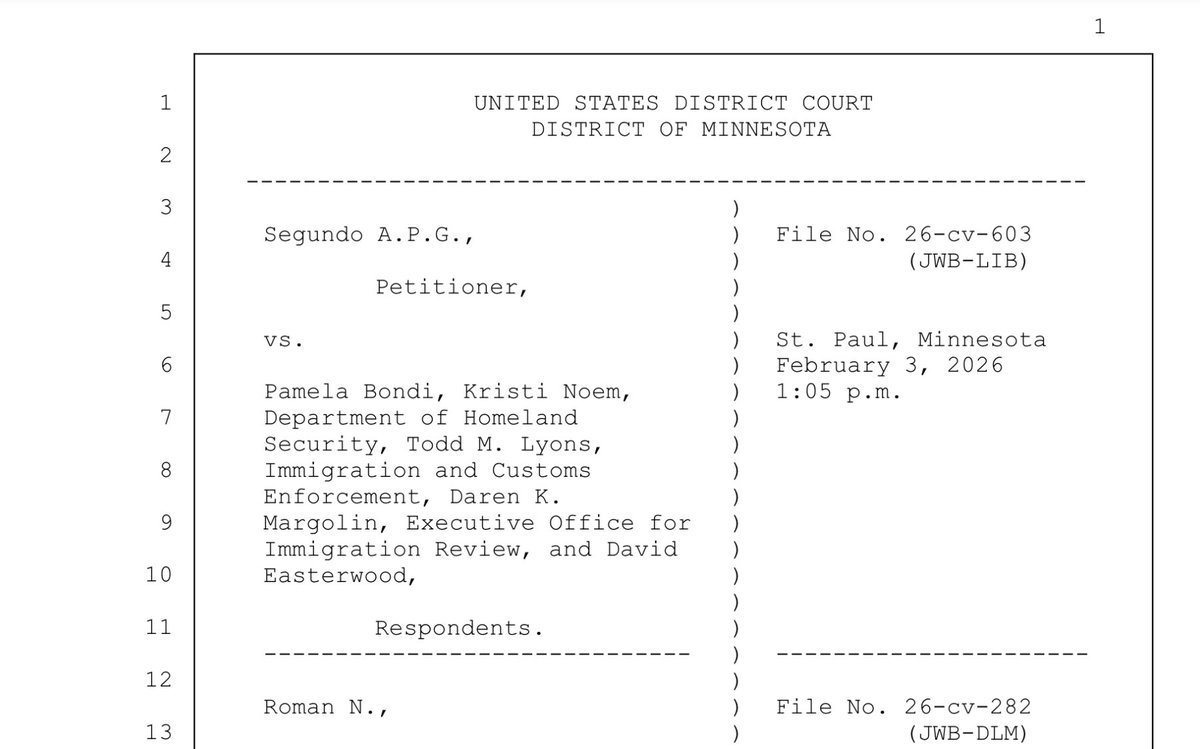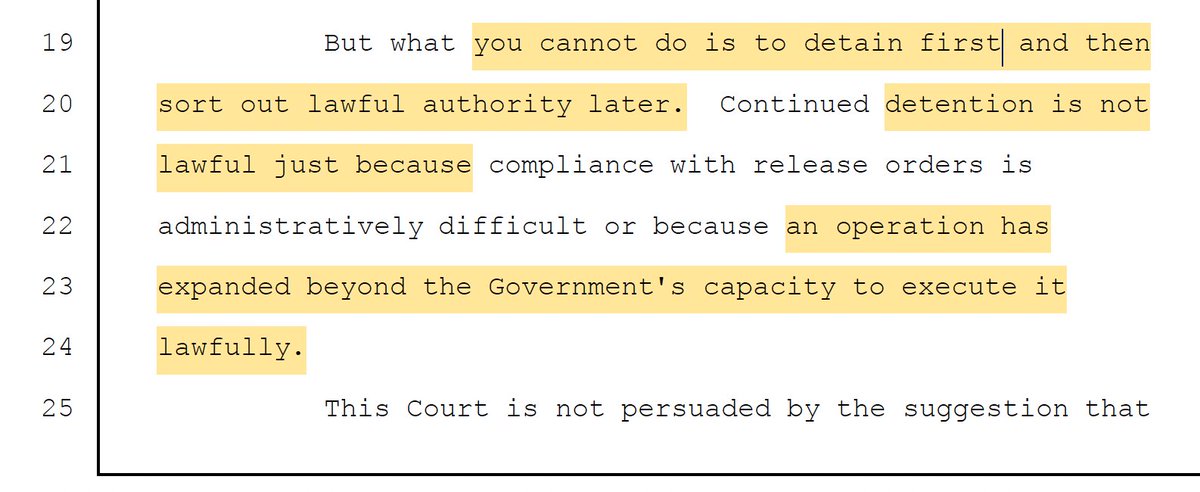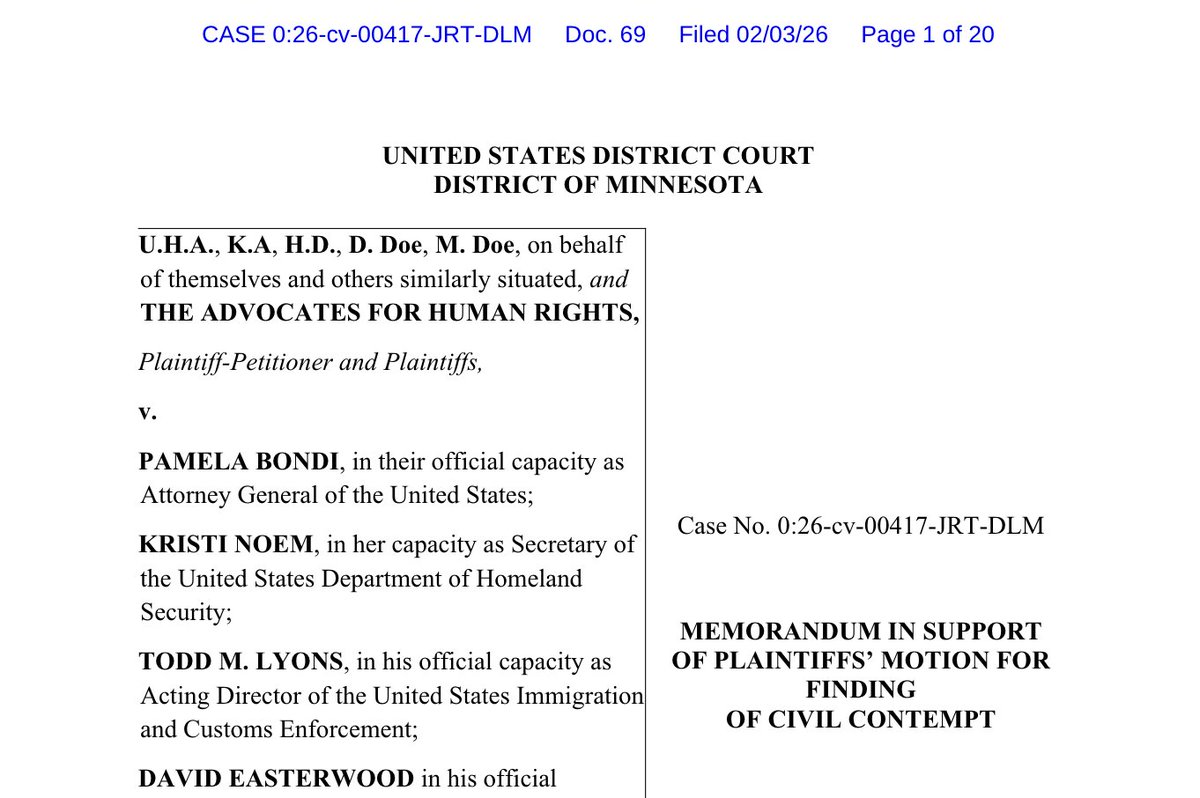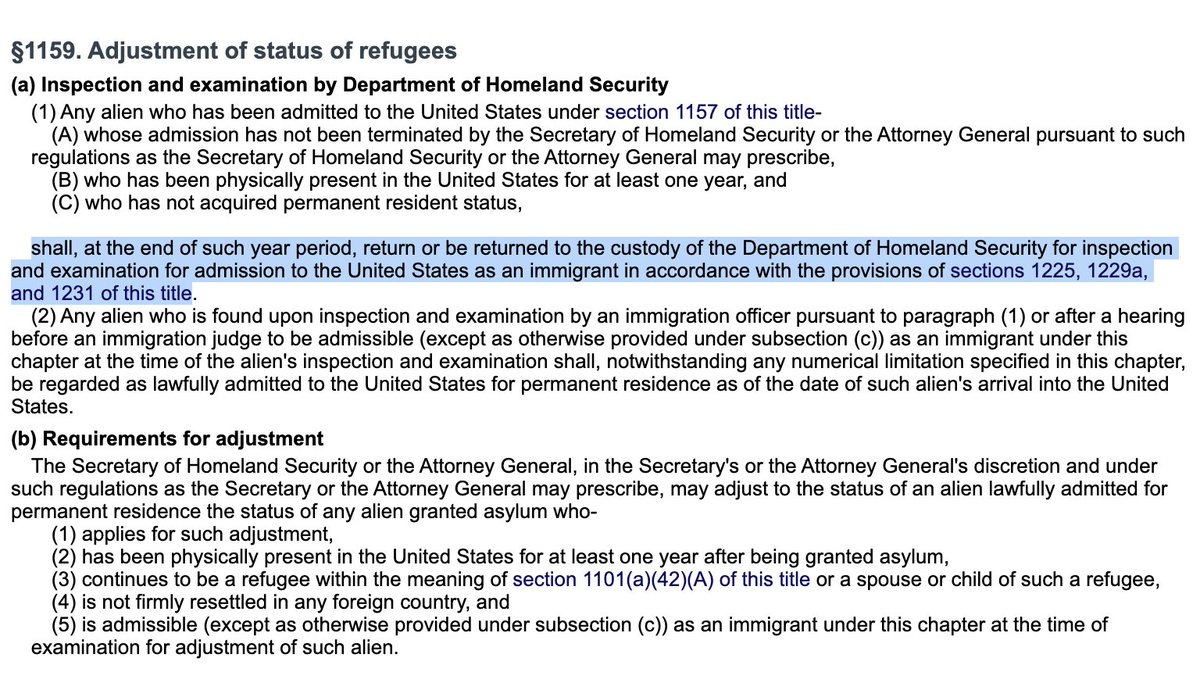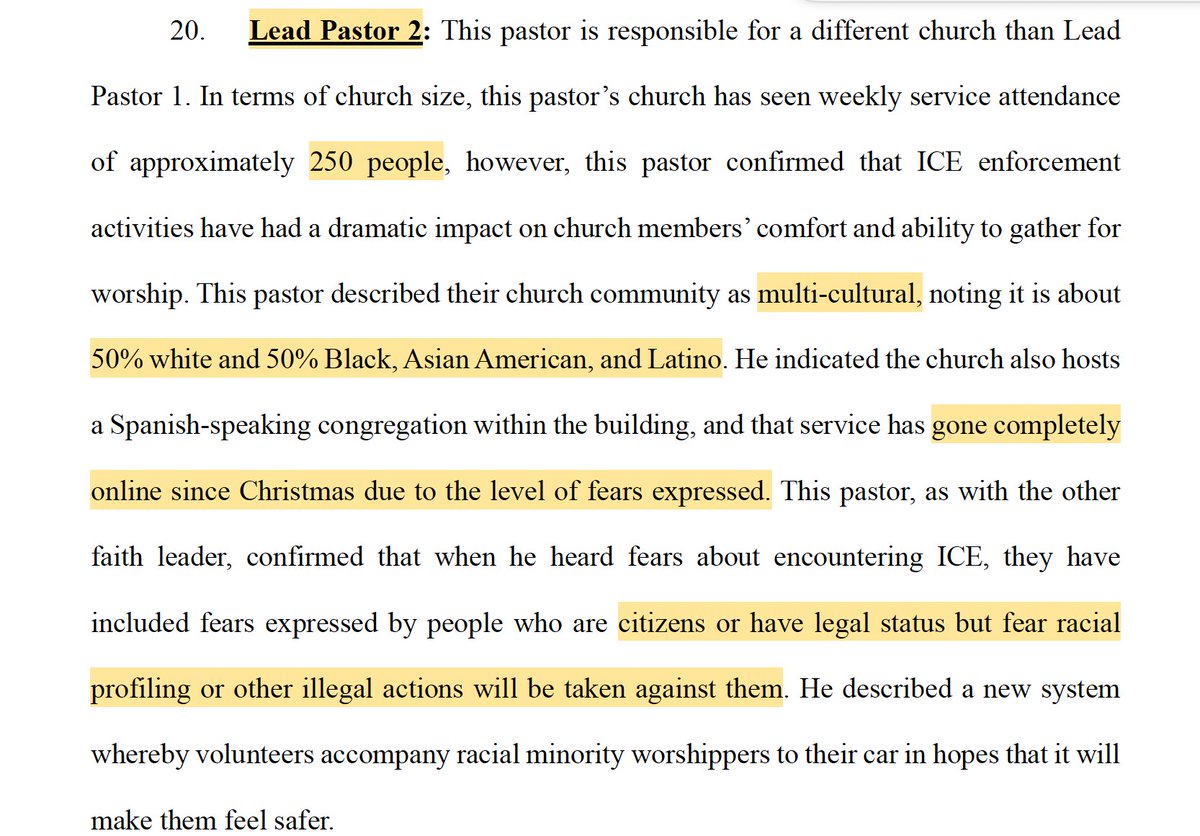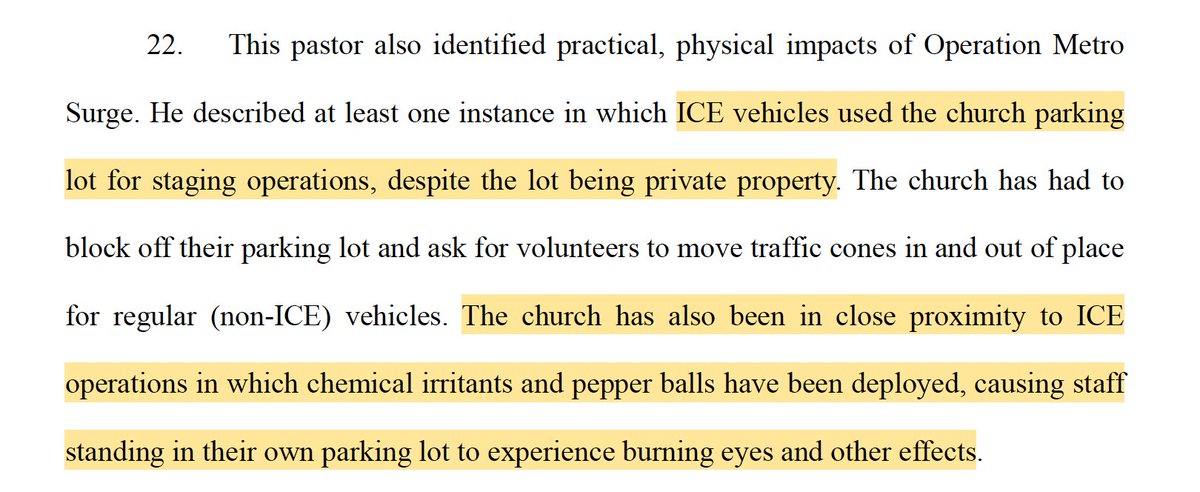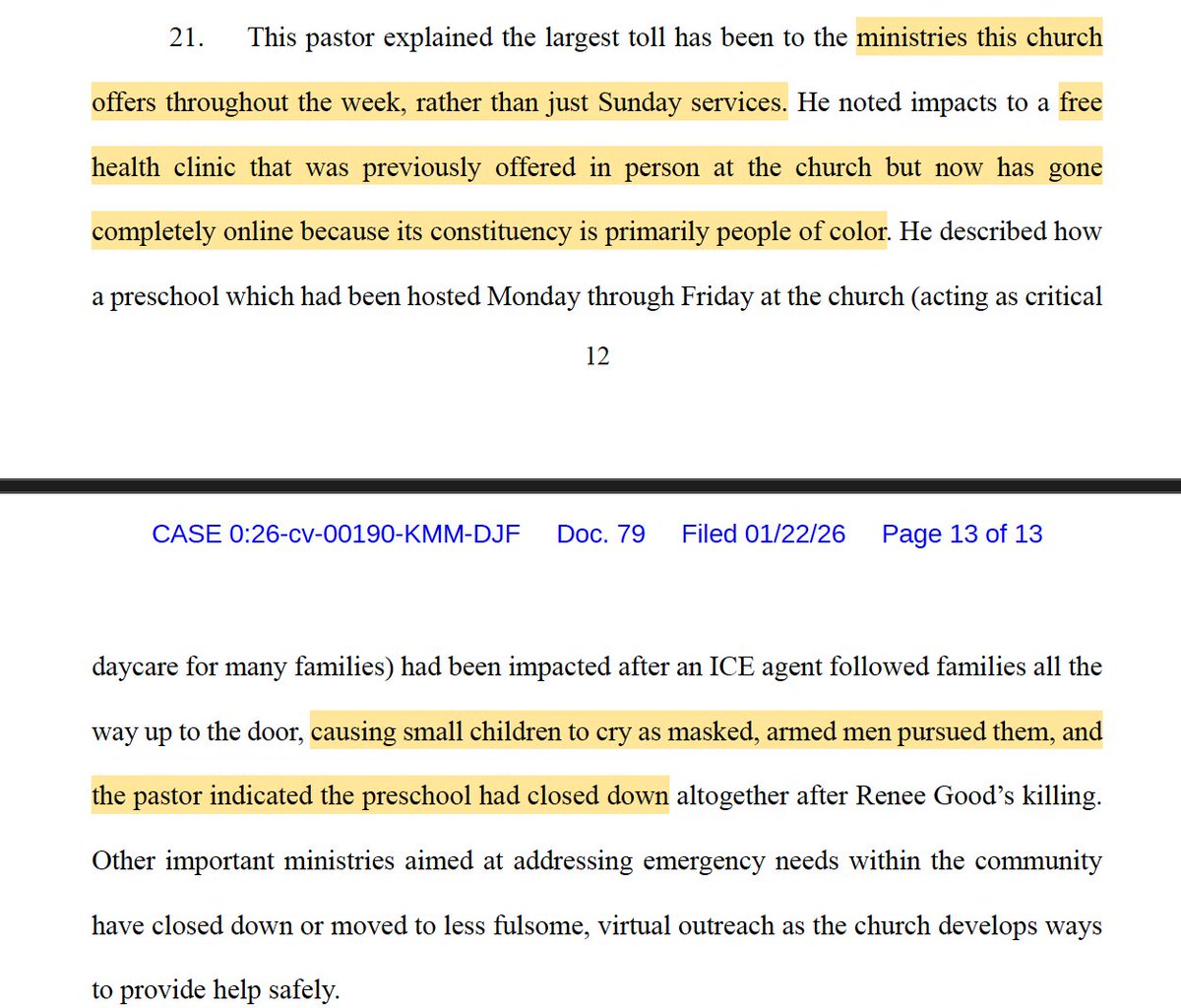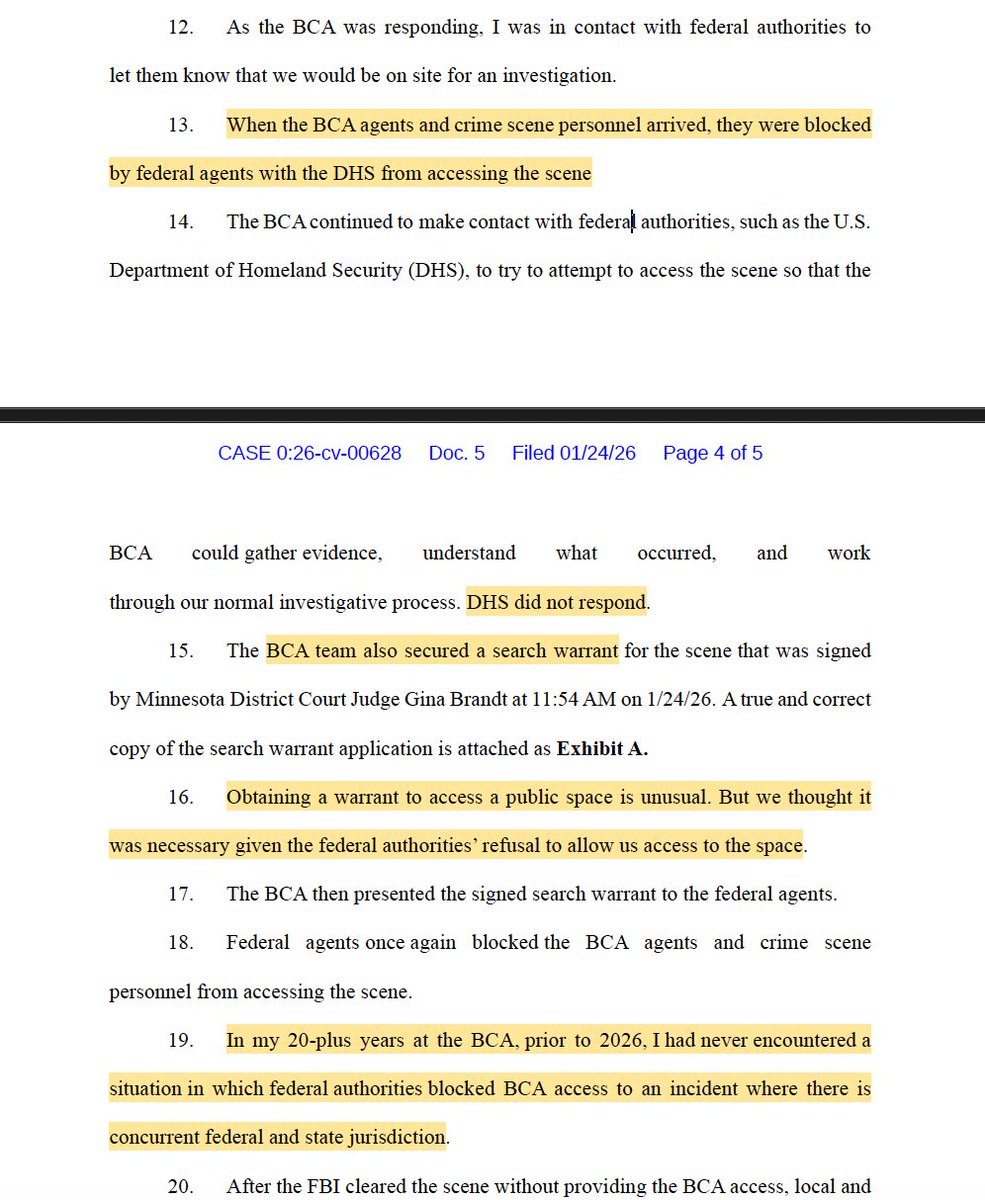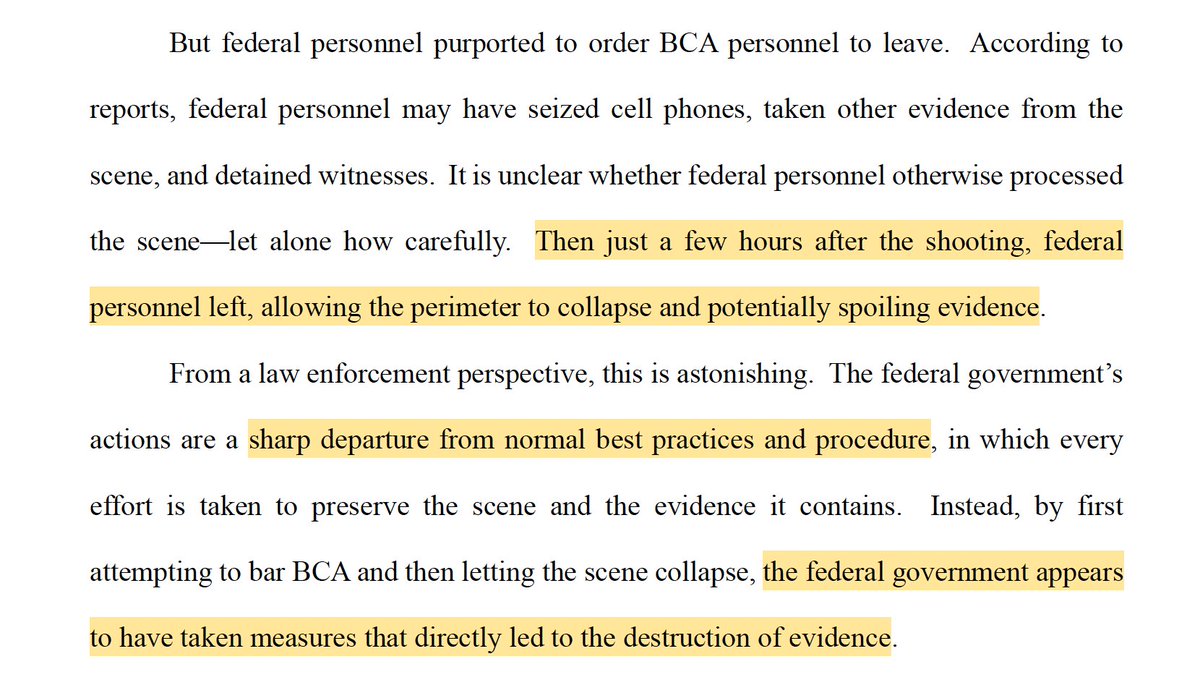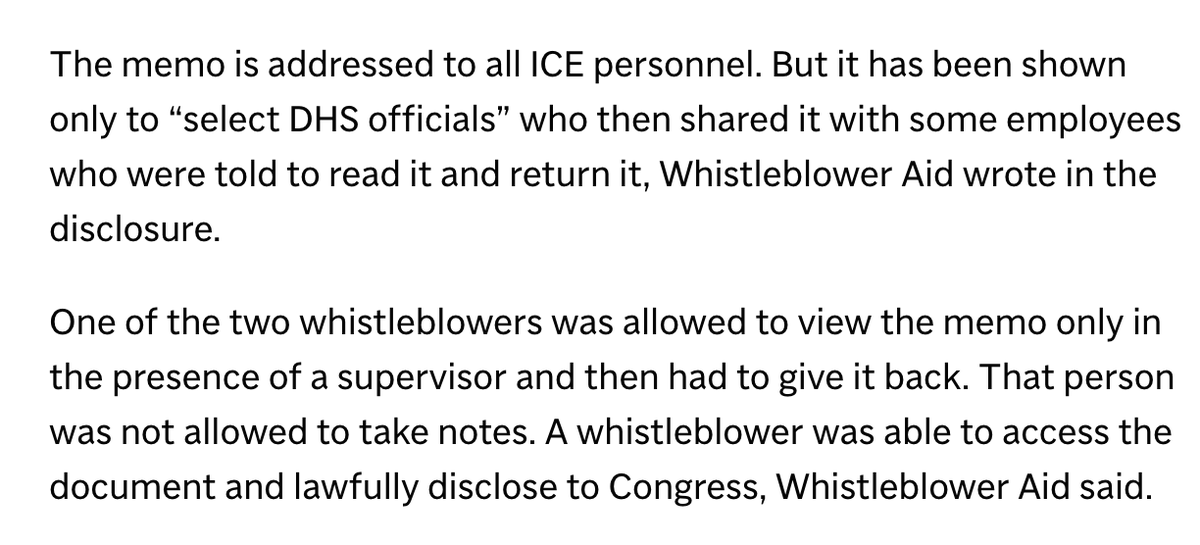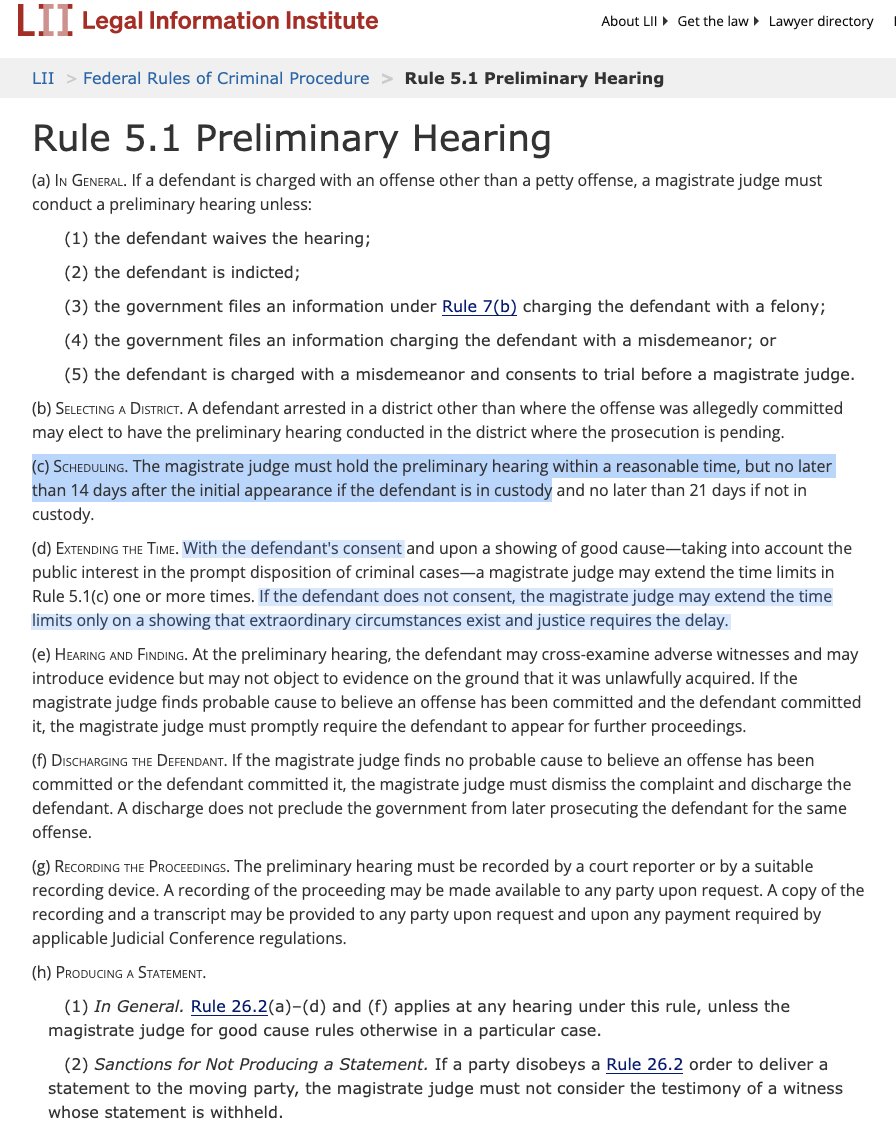I’m puzzling over the chief justice’s crucial but impenetrable fn 3 in the immunity ruling. It discusses when evidence of official acts can be admissible to prove crimes involving unofficial acts. I invite guidance/correction from lawyers, professors, & others ...
1/11
1/11
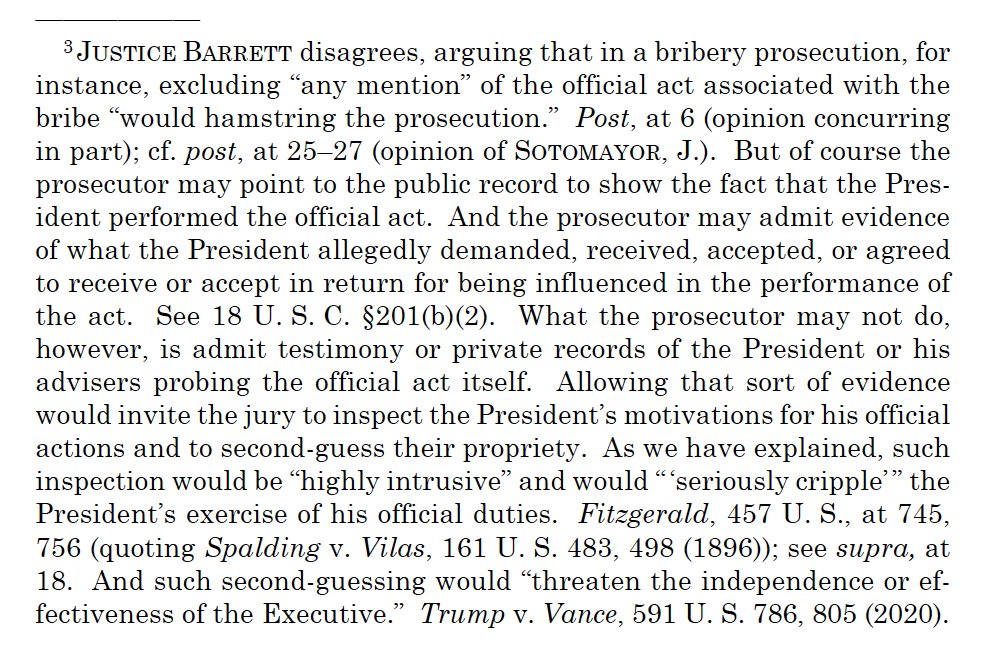
... Roberts is rebutting here the views of “concurring” Justice Barrett. (And I don’t get why Barrett says she’s only concurring when she’s clearly also dissenting to a crucial part of the ruling.) Explicitly agreeing with the dissent, Barrett writes ...
/2
/2

... “The Constitution does not require blinding juries to the circumstances surrounding conduct for which Presidents can be held liable.” Then Barrett talks about proving a bribe, which is an official act performed for unofficial & criminal reasons. ...
/3
/3

... Barrett says “the jury must be allowed to hear about both the quid and the quo, even if the quo, standing alone, could not be a basis for the President’s criminal liability.” ...
/4
/4

... In fn 3, Roberts protests that “of course” the govt can use the “public record” to show an official act. And it can present evidence to show “what the Prez allegedly demanded, rec’d, accepted, or agreed to receive ... in return for being influenced ...”
/5
/5

... But what govt can’t do is “admit testimony or private records of the Prez or his advisers probing the official act itself. Allowing that ... would invite the jury to inspect the President’s motivations for his official actions and to second-guess their propriety.” ...
/6
/6

... But it’s a f—ing bribe!! How can you prove the offense without inviting jury to “inspect ... motivations” for the official act? And how do you prove “what the Prez allegedly demanded, rec’d, accepted ... in return for being influenced” without ...
/7
/7
.... “admitting testimony or private records of Prez or his advisers probing the act itself”? Take Trump’s alleged solicitation of a bribe from Zelensky. In a nonpublic call, Trump said “I would like you to do us a favor though” ...
/8
/8

... The transcript is a private record and, therefore, inadmissible, right? The testimony of Vindman or anyone else (except maybe Zelensky) who overheard the call is inadmissible because they were advisers, right? How do you prove the offense? ...
/9
/9
... Bribery poses a quandary for Roberts because the Constitution explicitly says it’s a crime the President can be prosecuted for. Yet other perversions of presidential power—like abuses of prosecutorial power (Jeff Clark episode)—are absolutely immune. ...
/10


/10


... Is the truth that presidential bribery can’t be prosecuted anymore? Roberts obscures this anomaly—from himself?—by allowing prosecution in theory but setting up insuperable evidentiary obstacles. How do others interpret footnote 3?
/11-end
/11-end
I now see @GregTSargent beat me to this inquiry, and some professors have already weighed in in response:
https://x.com/GregTSargent/status/1808544806848844003
• • •
Missing some Tweet in this thread? You can try to
force a refresh


